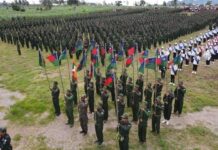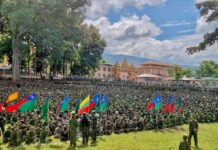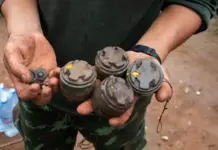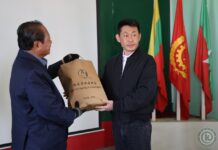
Book title : Myanmar’s Political Transition and Lost Opportunities (2010-2016)
Author : Ye Htut
Date of publication: 1 October 2019
Price : $ 42.04 (Amazon.com)
Two excellent reviews have already been written. One by the well-known scholar Robert H.Taylor as Foreword to the book. And the other by a former Military Intelligence officer in Burmese. It was the latter review which had whetted my appetite to read the book.
I wasn’t disappointed. There is a lot to learn from it: how our country’s leaders thought (and think) and what went on behind the scenes during those tumultuous years to make this country which it is today. And we are all indebted to Ye Htut for this.

For instance, government officials started to use the words “federalism” and “federal union” in 2012. Which means minorities, especially ethnic, will be given their long lost voices. Which in turn calls for a Proportional Representation (PR) system instead of the “Winner Take All” first-past-the-post (FPTT) system. Accordingly, parliamentary debates took place in 2014. Then as Ye Htut describes it, “Shwe Mann (the Speaker) dropped a bombshell. He informed MPs that he had asked the Constitutional Tribunal to review the commission’s eight options and the tribunal replied that only option 1, the existing FPTT system, conformed to the constitution, the remaining seven did not.”
To which MPs in support of the PR system “pointed out that instead of following due process for a tribunal ruling, the tribunal replied to Shwe Mann’s letter on the same day it received it. This was contrary to the Constitutional Tribunal Law and by-laws.” And that “Shwe Mann must allow a vote on all eight options, and only after the Hluttaw decided on a new electoral system, should the tribunal review its conformity with the constitution.”
Later “Aung San Suu Kyi said to her trusted NLD MPs on the morning of 14 November that they should not worry anymore about a PR system. Aung San Suu Kyi believed she owed Shwe Mann, and that is why Shwe Mann played an important role as chairman of the Pyidaungsu Hluttaw Legal Affairs and Special Issues Assessment Commission after the 2015 elections, even though he is not an elected member of the Hluttaw.”
The inevitable question that arises is, of course: if the PR system was not adopted by the USDP dominated parliament, will it be under the NLD dominated one? I leave the reader to answer that.
Ye Htut, at the beginning of the book, wrote he had known Shwe Mann (before Thein Sein) and had greatly admired him. But at the end of the book, he leaves no doubt in the reader’s mind who he admires more. “Retired senior military officers and their families—including Than Shwe and Maung Aye, current USDP leaders and their families including Shwe Mann, Tin Aung Myint Oo and Aung Thaung—had been involved in many suspicious business deals in the past.” However, Thein Sein was not one of them. “Thein Sein was clean and not personally corrupt. Nor were his three daughters involved in business.”
I think interested readers will be able to find out for themselves most of the answers for their questions in the book, the main text of which is only about 160 pages.
Nevertheless, I feel that there is one pertinent question Ye Htut has not answered.
After finishing it, I looked back and forth in vain to find what happened on 12-13 August 2015, at the “party coup” that hit the headlines and shook the nation.
Maybe the affair was so sticky and nasty that he doesn’t want to say anything about it. If it is so, I forgive you, my friend. I hope others will, too.
More later.












Leave a Comments